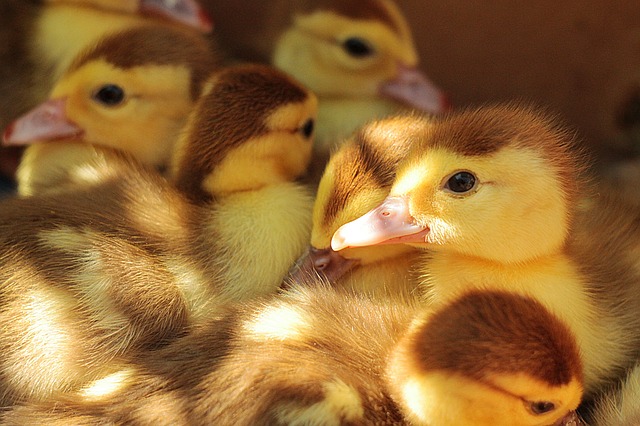The human ability to make inferences from what is the same and what is different is viewed by scientists as the foundation of abstract intelligent thought. Previously thought to be a trait unique only to humans, new research has shown that this trait, called same-different discrimination, is present in a most surprising creature: newborn ducklings.
The study, led by zoologists Antone Martinho III and Alex Kacelnik at the University of Oxford, decided to come up with a clever experiment to test just how intelligent birds can be. The New York Times reports that the researchers exposed 1-day-old ducklings to a pair of moving objects, which were composed of the same or different shapes and colors. They then exposed the ducklings to two new pairs of moving objects.
Martinho and Kacelnik found that around 70% of the ducklings preferred to move towards the pair of objects that had the same shape or colors as the first objects they saw. In short, a duckling that had first seen two green balls was more likely to move towards two blue balls than two balls of different colors.
Ducklings learn imprinting right after they are born, which is a quick learning process that allows them to recognize and follow their mothers.
The study’s results suggest that ducklings use abstract relationships between things they can sense like color, sounds, shape and odor to identify their mothers.
This is the first instance that an animal has showed a propensity for learning relationships without training. Previous studies have pointed to other animals such as pigeons, dolphins, bees and primates being able to differentiate items, but only after undergoing training.
Adding untrained newborn ducklings to this list means that the ability to compare abstract concepts is more likely to be important to many animals’ survival than previously thought, Martinho said. He says the ability is significant in helping animals identify objects in the context of their environments.
The study likewise shows that science is in a ground-breaking phase where it can now better understand the minds and behaviors of other animals.
The study was published in the journal Science.
























